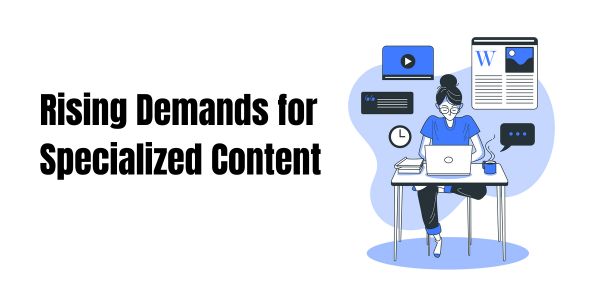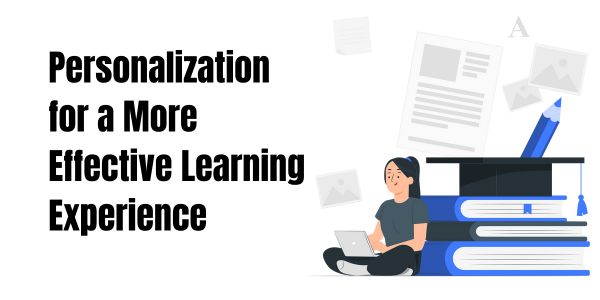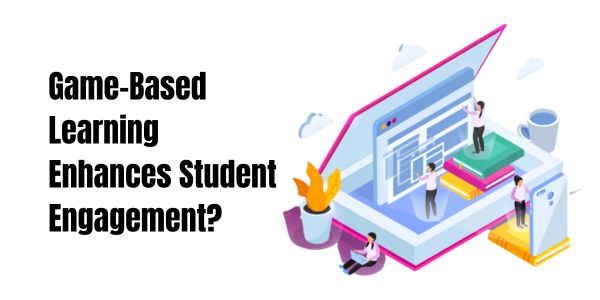Educational institutions today are increasingly realizing the importance of delivering high-quality, personalized, and inclusive educational content to their students. With the rapid advancements in technology and the changing needs of students, traditional educational content may no longer be enough to meet their requirements. This is where educational content development services come into play. In this blog, we will explore the ways in which educational content can be transformed by embracing emerging technologies, personalization, and inclusivity for enhanced learning outcomes.
Where do we begin?
In today’s digital age, education has evolved beyond traditional classroom settings to include various learning levels from kindergarten to professional training courses. For educational content to be effective, it needs to be engaging and impactful, regardless of the level of learning. Educational content services have a significant role to play in making this happen.
At the kindergarten and elementary school level, educational content is used to introduce students to basic concepts and skills such as reading, writing, and arithmetic. Content is often presented in an interactive and engaging manner using visual aids and interactive activities. This helps to keep young learners engaged and interested in the learning process.
As students progress to middle and high school, educational content becomes more complex and detailed. It is used to deepen students’ understanding of various subjects and topics and to prepare them for more advanced studies. Content may include textbooks, lectures, and multimedia presentations that are designed to be engaging and informative.
In higher education, educational content is used to provide students with a comprehensive understanding of various subjects and disciplines. Content is often delivered through lectures, seminars, and online courses, and may be supplemented by textbooks, research papers, and other materials. Educational content services play a critical role in higher education, as they help to develop and deliver high-quality educational content that is both informative and engaging.
For professional training courses, educational content is used to help learners acquire new skills and knowledge that are relevant to their work. Content is often designed to be highly practical and relevant to the learners’ specific job roles and responsibilities. It may include case studies, simulations, and other interactive activities that allow learners to apply their new knowledge in real-world scenarios.
Rising Demands for Specialized Content
As an educational content provider for academic institutes we explore a variety of content demands and with personalized care, these have been the most sought after.
Self-Instructional Material: This type of content is designed to allow learners to study and learn independently. It includes instructional materials such as textbooks, workbooks, and study guides, as well as digital materials such as videos and interactive modules.
E-Books: E-books are digital versions of books that can be read on electronic devices such as tablets and e-readers. They are a popular choice for educational institutions as they allow for easy distribution and access to learning materials.
Case Studies: Case studies are a popular teaching tool in fields such as business, law, and medicine. They provide students with real-world scenarios to analyze and solve, allowing them to apply their knowledge and skills in a practical way.
Multiple Choice Questions: Multiple choice questions are a common form of assessment in educational institutions. They allow for efficient grading and can test a wide range of knowledge and skills.
K-12 Content: K-12 content refers to educational materials designed for students in kindergarten through 12th grade. It includes textbooks, workbooks, and other materials designed to meet the specific needs of different age groups and subjects.
Employee Training Content: Employee training content is designed to provide training and development opportunities for employees of a company or organization. It can include materials such as videos, interactive modules, and quizzes.
Short Professional Course Content: Short professional course content is designed for individuals looking to enhance their skills and knowledge in a specific area. It can include materials such as videos, webinars, and interactive modules.
Questions and Answers: Questions and answers are a popular form of content used in educational institutions. They can be used to reinforce learning, test knowledge, and provide students with feedback.
Personalization for a More Effective Learning Experience
Personalization in education has become increasingly important in recent years, as research has shown that different students learn in different ways. Educational content development services can help institutions create personalized learning experiences that cater to the unique needs of each student.
One way to achieve this is through adaptive learning. With adaptive learning, educational content is tailored to the student’s pace and level of understanding. The content adapts to the student’s performance and provides feedback in real time, helping them to stay engaged and motivated.
Another approach to personalized learning is microlearning. Microlearning is the process of breaking down complex concepts into smaller, more manageable pieces. This can be achieved through the creation of bite-sized learning modules that cater to the student’s interests and preferences. By making learning more accessible and less overwhelming, students are more likely to stay engaged and retain the information they have learned.
Our educational content writers for academics in India can help institutions develop personalized learning experiences that incorporate both adaptive learning and microlearning. Our experienced team of content writers can create content that is tailored to each student’s learning style, using a range of multimedia elements such as videos, graphics, and interactive quizzes to engage and motivate them.
Moreover, we use advanced analytics to track the performance of each student, providing real-time feedback to help them stay on track and reach their full potential. With our personalized learning solutions, we can help institutions achieve better learning outcomes and ensure that each student receives the education they deserve.
Inclusivity for a More Diverse Learning Environment
Inclusivity is another important aspect of educational content development that cannot be ignored. With a growing emphasis on diversity and inclusivity in educational institutions, it is crucial that content is created in a manner that is accessible to students with diverse backgrounds and abilities.
Educational content development services can help institutions create content that is accessible to students with disabilities. By incorporating features like closed captions, audio descriptions, and screen readers, institutions can make their content more accessible to students with visual or hearing impairments.
In addition, content can be created in multiple languages to cater to students from diverse linguistic backgrounds. This can help create a more inclusive learning environment that caters to the needs of all students.
Game-Based Learning Enhances Student Engagement?
Learning is supposed to be fun. That is however not true for all and that is not a problem either. Educational institutions have been at the forefront of keeping up with technological developments and why would they not be?
They are literally supposed to be building the future. It is no surprise that they have caught onto gamification and it is yielding results – not only is it a profoundly useful tool to track student performances but it really does help with creating all that fun that education is supposed to be.
Game-based learning is an effective way to engage learners and enhance their learning outcomes. By introducing game elements such as points, badges, leaderboards, and challenges, learners become more motivated and invested in the learning process. Games provide an immersive learning experience that allows learners to interact with the content and apply their knowledge in a fun and interactive way.
This type of learning can also be used to develop skills such as problem-solving, critical thinking, decision-making, and collaboration. With game-based learning, learners can enjoy the process of learning while achieving predetermined e-learning goals, making it an effective way to deliver corporate training and educational content.
Take a look at how we do it for example, when it comes to e-learning content, we provide a range of options that cater to different learning styles and preferences. Our Level 1 web-based training solutions offer a quick and efficient way to grasp the basics of a module, while our Level 2 e-learning content with voiceovers is designed to enhance specific skills and knowledge. For a more hands-on approach, our Level 3 e-learning content features animations, graphics, and interactive material that allows for practical application of theoretical concepts.
But it’s not just about the format of the content – it’s about the impact it has on the learner. That’s where our game-based learning solutions come in. By incorporating badges, leaderboards, points, and victory marks, we create engaging e-learning experiences that motivate learners to achieve their goals.
Meeting the Demands
Educational content development services offer numerous benefits to educational institutions and students. These services help institutions deliver high-quality and personalized content that caters to the unique needs of each student. This can be achieved through the use of emerging technologies such as adaptive learning and microlearning, as well as personalized content development that takes into account each student’s learning style, interests, and preferences.
Educational content services can also help institutions create content that is inclusive and accessible to students with diverse backgrounds and abilities. This can be achieved through the use of alternative formats such as braille, audio, and video, as well as the creation of content that is culturally sensitive and free from bias.
They can help institutions stay up-to-date with the latest developments in technology and pedagogy. This is particularly important in today’s rapidly changing educational landscape, where institutions must keep pace with emerging technologies and best practices in order to deliver effective and impactful educational content.
Finally, an educational content provider for academic institutes can help institutions save time and resources by outsourcing the creation and development of educational content to experienced professionals. This allows institutions to focus on their core competencies and deliver high-quality educational content to their students without having to invest in additional infrastructure and personnel.
we specialize in answering these demands of educational institutions and envision a better future for modern learning.



